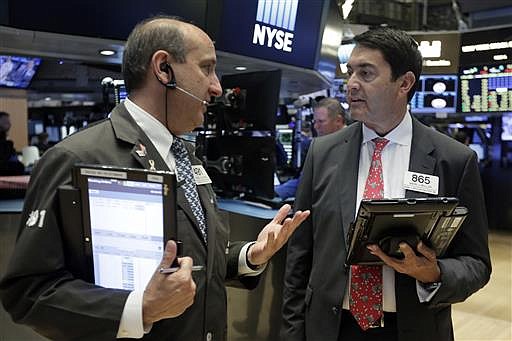NEW YORK (AP) - U.S. stocks slumped Tuesday as investors grew fearful over the health of the British financial system. Looking for safety, they flocked to Treasury notes and pushed the yields on long-term government bonds to all-time lows. Energy companies took the biggest losses as oil prices tumbled.
Investors were jolted after three U.K. financial firms stopped trading in their commercial property funds because large numbers of investors were trying to liquidate their holdings.
Stocks mostly fell, although investors bought shares of companies seen as safe plays, like household goods makers and utilities. Bond yields plunged, with the 10-year and 30-year Treasury yields reaching record-low levels as demand for Treasuries rose and prices jumped.
It was an abrupt end to a big four-day rally for stocks, and a reminder that the effects of Britain's vote to leave the European Union has left markets deeply unsettled. Answers may be very slow in coming.
"We've seen a tremendous rally pretty much every night in longer-term bonds" since the vote, said Tom di Galoma, managing director at Seaport Global Holdings. "There's just so many unanswered questions both from the legal standpoint, a diplomatic standpoint, an economic standpoint."
The Dow Jones industrial average fell 108.75 points, or 0.6 percent, to 17,840.62. The Standard & Poor's 500 index slid 14.40 points, or 0.7 percent, to 2,088.55. The Nasdaq composite lost 39.67 points, or 0.8 percent, to 4,822.90. U.S. markets were closed Monday for the Independence Day holiday.
Stocks took a steep two-day plunge last month after Britain voted to leave the European Union. Over the last four days they recovered almost all of the ground they lost after the vote.
On Tuesday the trouble began when Aviva Investors, Standard Life and M&G Investments stopped trading in their commercial property funds. The firms said they were protecting other investors who wished to remain in their respective funds. The Bank of England said it eased bank rules to allow them to lend up to $200 billion to households and businesses.
The pound fell to $1.3032 from $1.3259 on Tuesday, its weakest in 31 years.

